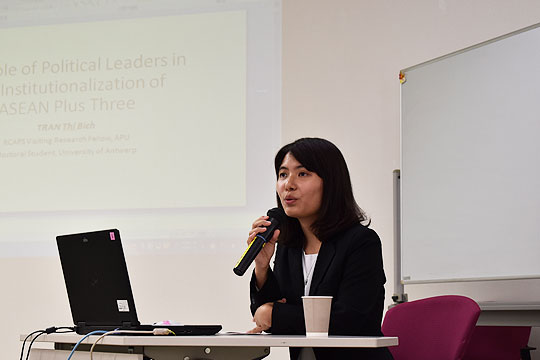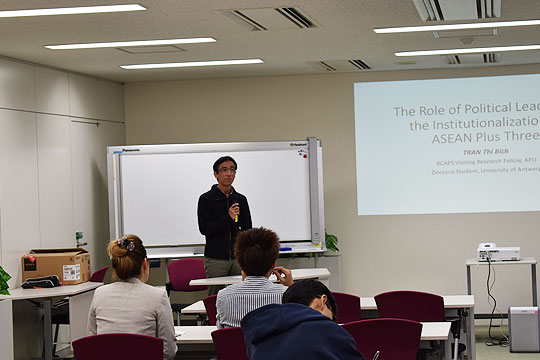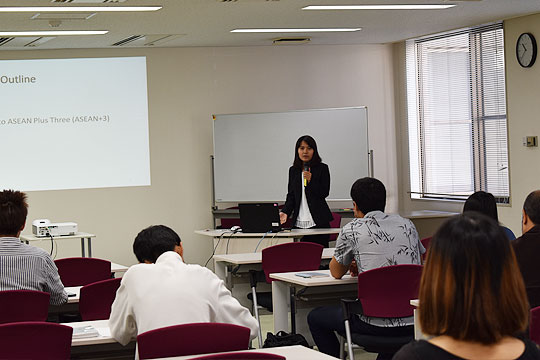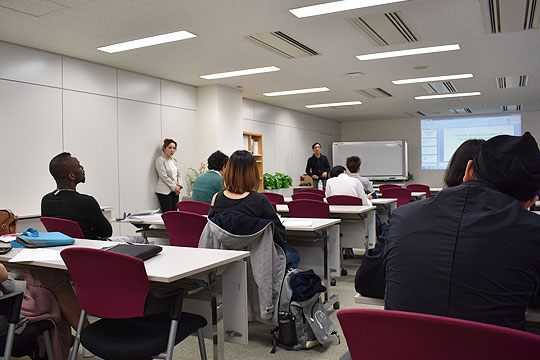On October 24, Thi Bich Tran delivered a Ritsumeikan Center for Asia Pacific Studies (RCAPS) Current Research Seminar entitled "The Role of Political Leaders in the Institutionalization of ASEAN Plus Three.”
Tran is currently completing her PhD at the University of Antwerp in Belgium, in addition to her research activities at APU. Her presentation is part of a larger ongoing research project which aims to compare the roles of political leaders in the institution-building processes of ASEAN Plus Three and the European Union.
Tran’s presentation focused on the time period from 1990 to 1999. She identified then Malaysian Prime Minister Mahathir Bin Mohamed and Singaporean Prime Minister Goh Chok Tong as the leaders who played an important role in the institution-building of ASEAN Plus Three. Despite placing the decision makers at the center of foreign policymaking, she analyzed various factors that either facilitated or constrained these leaders in promoting their institutional preferences.
In a Q&A session after the talk, Tran agreed with a faculty member’s comment about providing stronger justification for focusing on political leaders. Other questions and comments, such as expanding the period under study and considering the roles of parliaments and political parties, were concurrent with Tran’s plans for her future research.
The post-presentation discussion took an interesting turn when one of the graduate students asked about the experience of applying to graduate school in Belgium. As a graduate of one of APU’s master’s programs, the master’s students in attendance could take note of her experience.
Thi Bich Tran is one of the five RCAPS Visiting Research Fellows who conduct research jointly with APU faculty members for a minimum of six months. She is also a researcher at one of RCAPS’s affiliated research centers, the Center for Democracy Promotion.
RCAPS facilitates seminars once or twice a month. These seminars are designed to inspire and encourage faculty members and graduate students to conduct research on the Asia Pacific region. Additionally, they provide a platform for the speaker and audience to exchange viewpoints.













